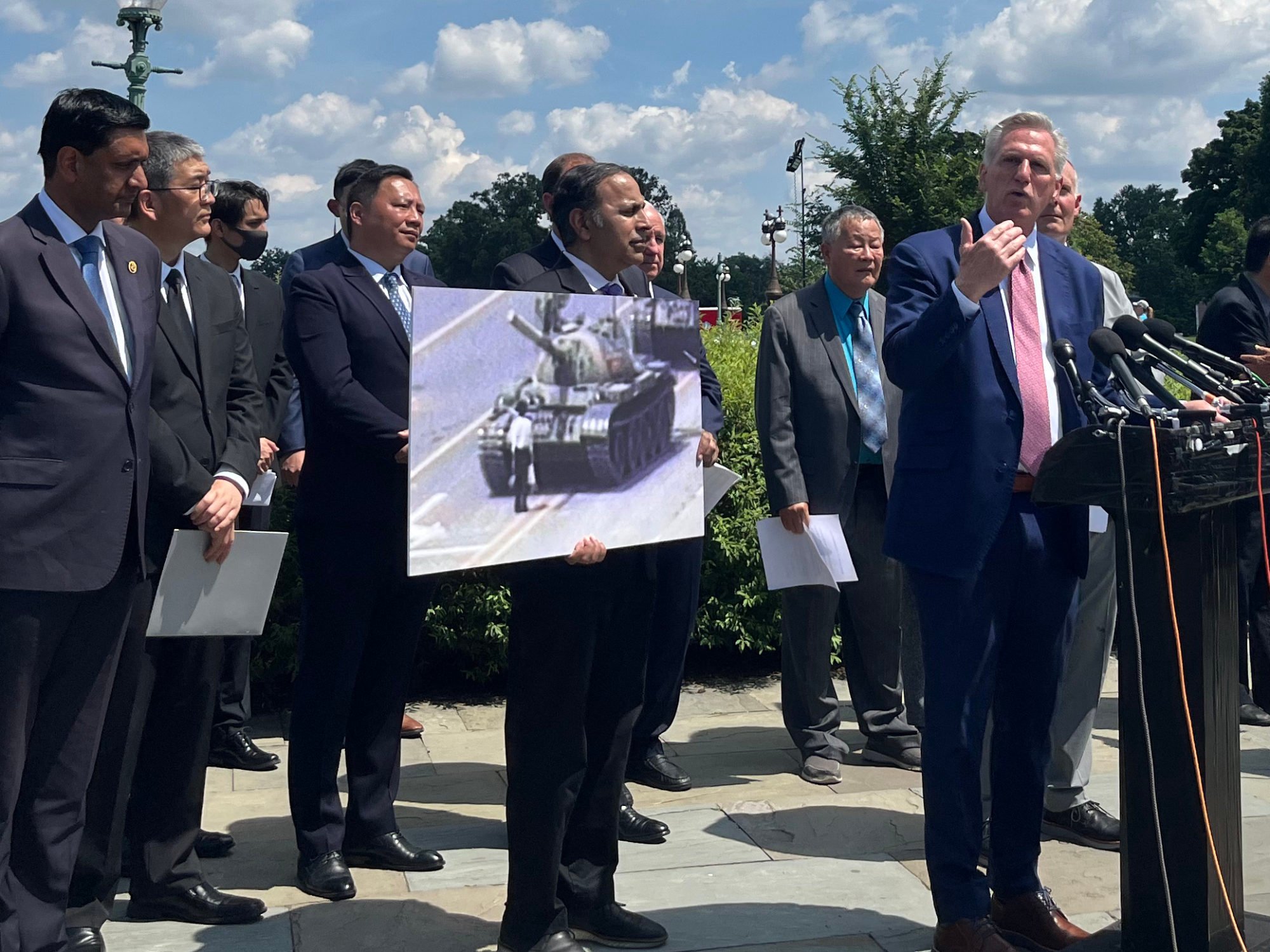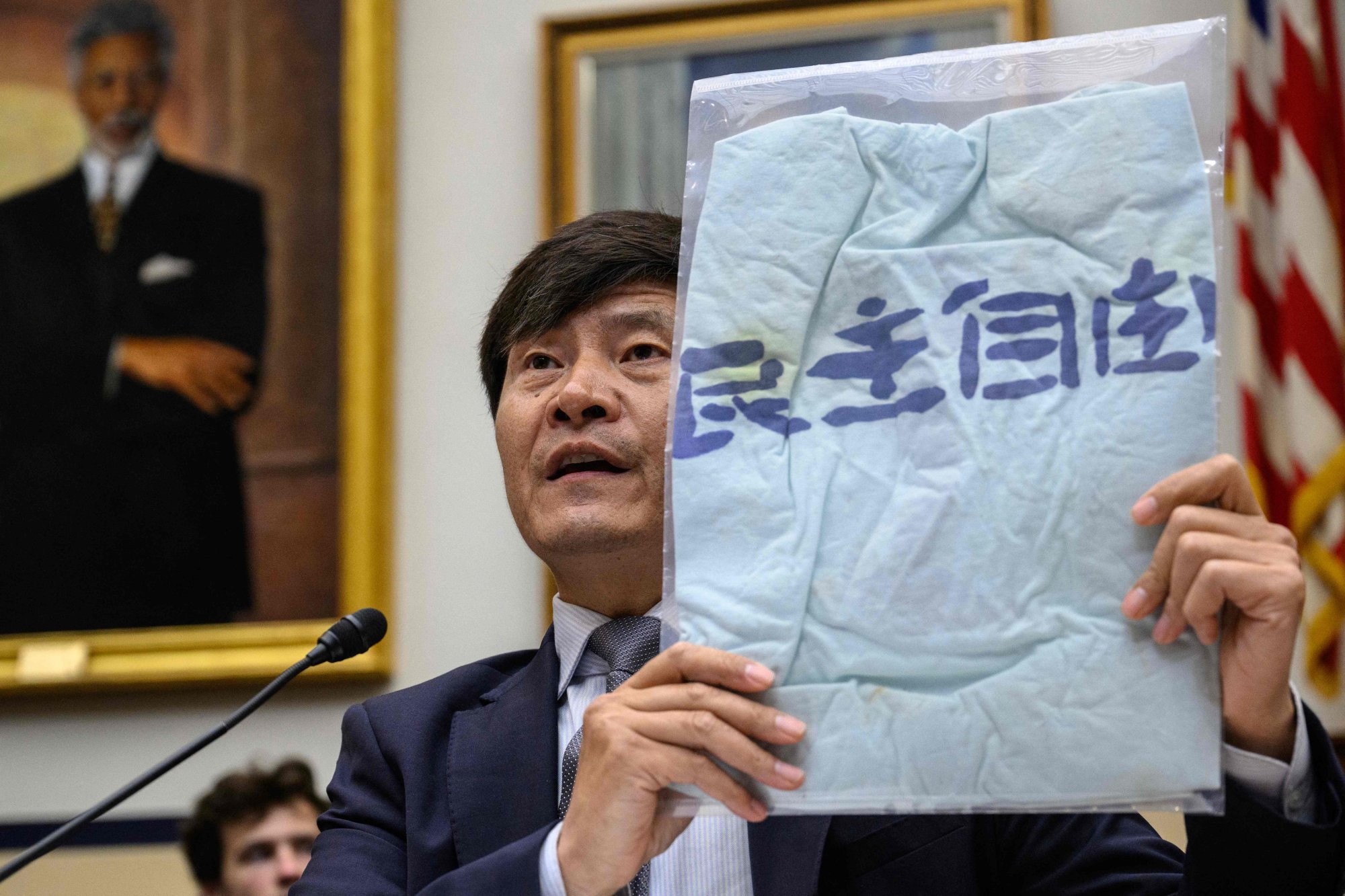Bipartisan groups of lawmakers hosted public commemorative events of their own.
Members of the House select committee on China spoke in front of the Capitol. Representative Raja Krishnamoorthi of Illinois, the panel’s senior Democrat, vowed to support anyone who “stands for freedom”.
“Today, we say in one voice, in a bipartisan fashion: no more silence. No more silence about the Uygur genocide in Xinjiang. No more silence about Tiananmen Square. No more silence about the cultural genocide happening in Tibet,” he said.

Lawmakers, both current and former, referred to the changing political situation in Hong Kong at the event.
“In Hong Kong, once a beacon of commemorative freedom, the massive June 4 annual vigil that mourn the victims for decades, has now vanished – a casualty of the city’s clampdown on dissidents following huge anti-government protests in 2019,” said former Republican representative and house speaker Kevin McCarthy.
Others who spoke at the committee’s gathering included Republican Representatives Andy Barr of Kentucky and Carlos Gimenez of Florida; and Democratic Representatives Seth Moulton of Massachusetts and Ro Khanna of California.
Representative Nancy Pelosi, the California Democrat and former house speaker, recalled trying to unfurl a banner in the square in 1991 with other representatives to memorialise the crackdown: “Of course we were driven from Tiananmen Square with billy clubs,” she said.
Activists Wang Dan and Zheng Xuguang, student leaders during the Tiananmen demonstrations; Wei Jingsheng, leader of the 1978 “Democracy Wall” protests in Beijing; and Sophie Luo Shengchun, the wife of jailed Chinese dissident Ding Jiaxi, also addressed the gathering.
While political protests are rare in mainland China, other forms of protests have been occurring consistently there in recent years. According to Washington-based democracy watchdog Freedom House, there were 655 instances of offline and online dissent in the first quarter of 2024, with 57 per cent of them focused on labour and 10 per cent led by religious groups.
Also on Tuesday, the Congressional-Executive Commission on China, a bicameral, bipartisan panel that advises Congress and the president on China policy, held a hearing with Zhou Fengsuo, another Tiananmen student leader, as well as two current Chinese student activists involved in 2022’s “White Paper” movement.

The US on Tuesday joined Britain, the European Union and other countries in commemorating the Tiananmen protests.
“The UK calls for the protection of human rights and stands up for those who defend freedom. Today, we remember those who were killed while peacefully protesting in and around Tiananmen Square,” David Cameron, the British foreign secretary, posted on X, formerly known as Twitter, on Tuesday.
Earlier on Tuesday, China’s Ministry of Foreign Affairs spokeswoman Mao Ning addressed the support for the Tiananmen protesters: “The Chinese government has already made clear conclusions about the political turmoil that occurred in the late 1980s. We have always opposed anyone using this as an excuse to attack and discredit China and interfere in China’s internal affairs.”
Other dissent was present in Washington on Tuesday. A handful of protesters, including from US-based anti-war group Code Pink, held up signs next to the House select committee event saying “China is not our enemy”.

